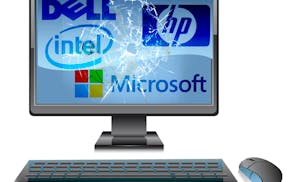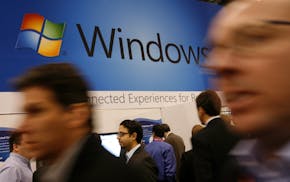Q: When you wrote about "Which TV system for the digital age" three weeks ago, you didn't answer all of my questions.
You suggested getting an Internet connection with a download speed of 10 to 15 megabits. Do I really need a connection that fast, and where can I get it?
How fast should a wireless router be to send streaming TV from the Internet to a Blu-ray player or other device that connects to the TV? Are there any websites about how to hook up a home wireless network for TV?
I use DirecTV, but when it rains I lose the satellite signal and have to use an outdoor antenna to get local channels. Is there a better alternative?
Stephen Steinbrecher, Miami
A: You don't need a 10 to 15 megabit download speed today, but it will be useful in the future as higher-definition video streaming becomes routine. Today a download speed of 5 megabits will produce good results. You can get a 5 megabit connection from either the phone company or the cable company; for significantly higher speeds you'll need to use the cable company in most cases.
Netflix offers some advice on how fast your Internet connection should be to stream video at different levels of picture quality; see tinyurl.com/mlqzhvp.
You don't need to worry about the speed of the wireless router. Any router you can buy today will be much faster than your Internet connection, which is the real bottleneck in watching streaming video or downloading movies. For a basic overview of "Home Networking for Internet TV," see tinyurl.com/d73jv2o.
You shouldn't lose your DirecTV signal except during a sizable storm. If you lose the signal every time it rains, your satellite dish isn't aimed properly, which means you aren't getting maximum signal strength.
Bulk e-mail services
Several readers of last week's column said I gave the wrong advice to Dave Sledge, a Louisiana small-businessman who had several hundred e-mails to his customers blocked by Yahoo as spam. I suggested he send his e-mail in smaller batches, and perhaps not make them all identical, to avoid being labeled as a spammer. But the readers thought I should have told Sledge to outsource his e-mail efforts to a professional e-mailing firm.
Chris Levine of Lakeland, Fla., who works for a nonprofit company with a large e-mail list, wrote: "We use a bulk e-mail service to send our e-mails out. The service charges a nominal fee and guarantees our outgoing e-mail will not be blocked (our e-mails still appear as if they are coming directly from us). They can do this because they have been certified as bulk e-mail providers and not spammers after meeting a rigorous set of industry standards."
For a comparison of some bulk e-mail providers, see tinyurl.com/yjju4xl. Prices are in the range of $15 to $30 a month to send 1,000 e-mails.
E-mail tech questions to steve.j.alexander@
gmail.com or write to Tech Q&A, 425 Portland Av. S., Minneapolis, MN 55488. Include name, city and telephone number.

Alexander: A beeping computer is telling you what's gone wrong inside

Alexander: How to stop deleted iPhone e-mails from coming back

Alexander: Refurbished PCs may need a BIOS update to use new components

Alexander: Windows 11 not always to blame for browser or e-mail problems


